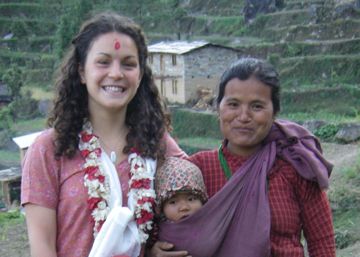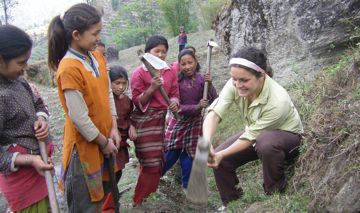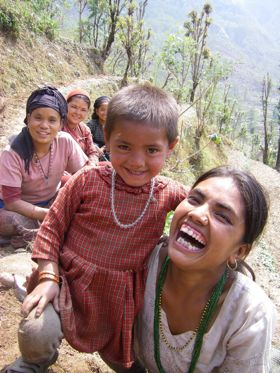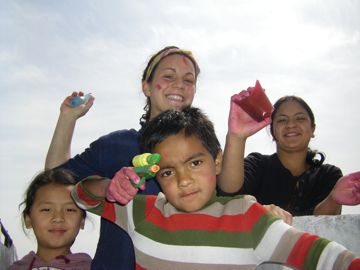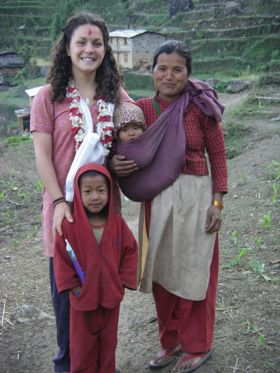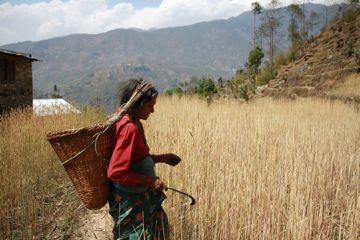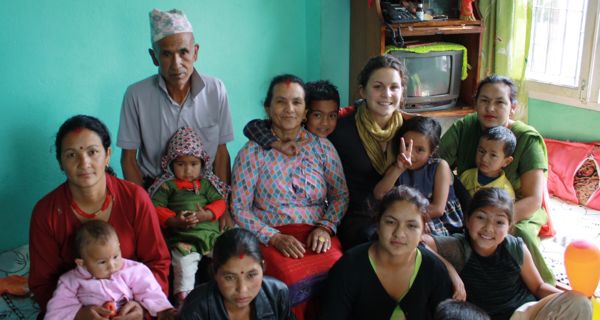
The author and her Nepali host family at home in Kathmandu. All photos courtesy Sarah Vazquez.
Being a minority is one of the most valuable experiences of travel. The sensitivity and awareness we learn from the minority perspective is important to bettering ourselves as global citizens. This is especially true for citizens of the United States.
